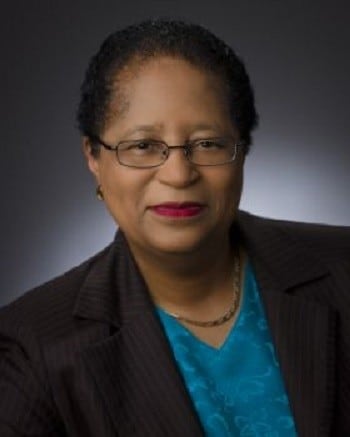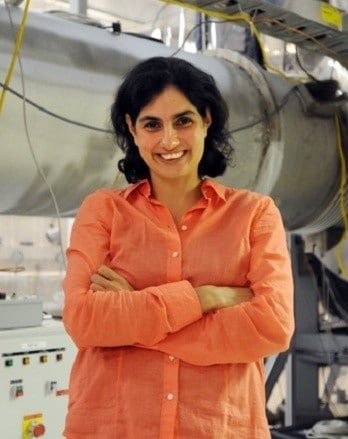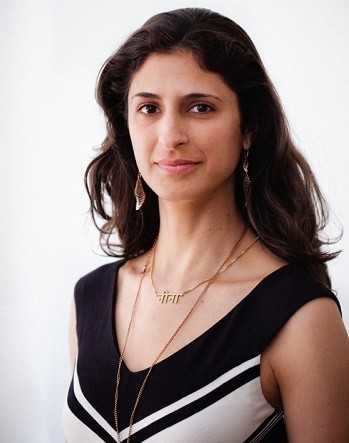10 interviews with inspiring female scientists

From gene editing to generating green energy, these scientists are working on some of the most crucial challenges of the day

Get involved with our crowdsourced digital platform to deliver impact at scale
Stay up to date:
Fourth Industrial Revolution
From peering at the outer reaches of our universe to probing the innermost workings of our genes, women are pushing back the frontiers of science.
While most headlines about women in “STEM” (science, technology, engineering and mathematics) understandably focus on the dispiriting gender gap in these fields - caused by complex reasons involving everything from harmful stereotypes to subconscious bias - we decided to take a more positive tack.
Ahead of our meeting in China, which focuses on science and technology, we’re publishing a series of interviews with ten inspiring female scientists: from young researchers starting out in their careers, to lauded professors. They include Nergis Mavalvala, the physicist who discovered proof of Einstein’s gravitational waves, Sarah Amiri, the 29-year-old lead scientist for the UAE’s Mars mission, and Nina Tandon, who is pioneering a method for growing human bones in a laboratory, potentially avoiding the need for painful grafts. Each interview captures a “goosebump” moment of awe, discovery and possibility.
"Science plays an ever-important role in our complex world, from understanding major global challenges such as climate change in the first place, to finding new ways to combat them," says Alice Hazelton, a science programme specialist at the World Economic Forum.
The interviewees

Elissa Aminoff is a research scientist at the Center for the Neural Basis of Cognition, at Australia’s Carnegie Mellon University. She studies how the brain formulates vision and memory, using computer modelling to explore the parallels between machine and human intelligence. This doesn’t mean our brain is like a computer; rather that “computers are giving us the closest thing that we have right now to an analogous mechanism.” Her research includes studying why our brains form false memories, and what this can tell us about the future of neuroscience and the next steps in computing.

Sarah Amiri is the lead scientist for the UAE’s Mars Mission. As her country makes a “transition from an oil-based economy to a knowledge-based one,” science has a key role to play. Part of this is the plan to send an unmanned spacecraft, the “Hope”, to reach Mars in 2021, where it will provide unprecedented data on the Martian climate and also “send a message to our youth, to show there is a path that is based on science and technology and not on radicalism.” It’s a path open to both genders: she points out that most science graduates in the UAE are women, adding: “Ironically, when we meet with international entities, that's when I'm often the only woman in the room.”

Qiurong Ding is a Professor at China’s Laboratory of Human Genetics and Metabolic Diseases, who hopes to use pioneering gene-editing techniques to make people “immune” to inherited conditions like heart disease and diabetes. Working in a field which offers great potential for good as well as opening up profound ethical questions, she talks about striking the right balance: “I'm OK working with somatic cells - liver or muscle cells. We could potentially cure a lot of diseases. I'm more hesitant about sperm and eggs … For example, I have dark eyes and dark hair, but if I wanted a baby with green eyes, I could edit the genes and achieve that. But I think that would go too far.”

Marjolein Helder, scientist, entrepreneur and CEO of the Dutch company Plant-e, has come up with an ingenious solution to the challenge of producing enough food and power for the world’s growing population: generating electricity from the roots of living plants. She explains how you really can power wifi from a rice paddy in her interview, arguing: “our population is growing, but our planet will stay the same size. So we will need to use the land more efficiently.”

Shirley Ann Jackson, the first African-American woman to earn a doctorate at MIT, forged her career with fundamental research that underpinned breakthroughs in semiconductor technology. This year, President Barack Obama awarded her the National Medal of Science, the highest award for scientific achievement in the United States. As the current President of the Rensselaer Polytechnic Institute (RPI) and a Co-Chair of the World Economic Forum’s meeting in China, she talks about the connection between innovation and education, arguing that “progress… rests on a three-legged stool: academia, government and business.”

He Jianzhong, Associate Professor in Civil and Environmental Engineering at the National University of Singapore, also turns to nature to solve one of our most pressing problems: toxic industrial pollution. Waste chemicals seep into everything from the digestive tracts of polar bears to human breast milk, but Professor He’s work hopes to counter this by using a special group of bacteria to break down harmful waste. This is urgent work: “Right now we don't have very good technology to detoxify a big group of industrial pollutants. They can cause cancer, disrupt the hormone system and cause reproductive problems.” Currently, The US Environmental Protection Agency is using bacteria from her lab to clean up contaminated sites, and she is hoping to expand her work with companies in China and Malaysia.

Neo Mei Lin, a Research Fellow at the Tropical Marine Science Institute in Singapore, champions the plight of the giant clam. While cuddlier species like the panda tend to attract the attention of conservationists, Neo Mei Lin argues for the crucial role that the world’s largest species of shellfish plays in fragile coral reef ecosystems. “The environmental dangers faced by giant clams are similar to those for all coral reefs globally: major factors include pollution and coastal development,” she warns.

Nergis Mavalvala is a Professor of Astrophysics at the Massachusetts Institute of Technology (MIT), who discovered gravitational waves 100 years after Einstein identified them. In her interview, she describes the thrill of first observing a signal sent from the collision of two black holes 1.3 billion light years away - “so we observed something that happened 1.3 billion years ago.” She says that black holes are among the building blocks of our universe, and understanding them will help us to answer our most fundamental questions about ourselves: “What are we made of? Where do we come from?”

Tolu Oni, a Senior Lecturer in Public Health at the University of Cape Town, was shocked when, as a doctor with Medecins Sans Frontieres, she discovered that offensive myths were preventing people from getting access to HIV drugs. Since then, she has forged a career at the intersection between health and policy, arguing that governments need to draw on clear data, not hazy assumptions, to build healthy communities. Collaboration is key: “Many of the drivers of ill health lie outside of the health sector,” she says.

Nina Tandon, Chief Executive Officer and President of EpiBone, pioneered a technique to grow human bones outside of the body. When her fiancé needed reconstructive surgery on his ankle, she saw the pain he endured to have bone grafted from his hip. Her method extracts stem cells from a patient to grow a new bone within a custom-designed “scaffold”. While it will be a long haul to progress through human trials and bring a product to market, potentially in 2022 or 2023, it could transform the field of reconstructive surgery. “We're hoping that with our approach there won't be any need for immuno-suppressant drugs because there would be a recognition that it's the body's own, since it's your own DNA.”
Don't miss any update on this topic
Create a free account and access your personalized content collection with our latest publications and analyses.
License and Republishing
World Economic Forum articles may be republished in accordance with the Creative Commons Attribution-NonCommercial-NoDerivatives 4.0 International Public License, and in accordance with our Terms of Use.
The views expressed in this article are those of the author alone and not the World Economic Forum.
The Agenda Weekly
A weekly update of the most important issues driving the global agenda
You can unsubscribe at any time using the link in our emails. For more details, review our privacy policy.
More on Fourth Industrial RevolutionSee all
Bart Valkhof and Omar Adi
February 16, 2024
Anna Maria Collard
February 12, 2024
Adele Peters
February 8, 2024
Daniele Battaglia
February 6, 2024







